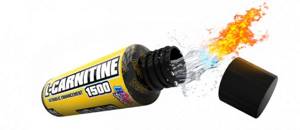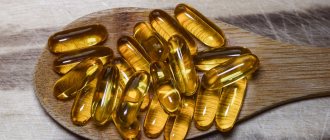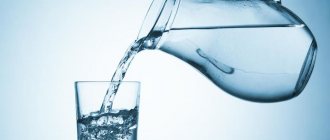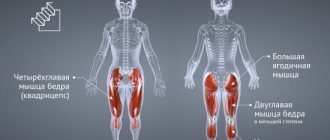L-carnitine is one of the most popular sports nutritional supplements currently, primarily among those involved in fitness and various strength disciplines, of which there are now a great many varieties.
The situation around L-carnitine is as follows: the sports community mostly recognizes the benefits of supplements based on this substance (however, there are also negative ones), but to which specific group should it be classified? Vitamin? Amino acid? Or a sports supplement of some other origin? And what exactly are its benefits for trainees? There is considerable confusion on these issues. This article is an attempt to present basic information about L-carnitine in popular language for everyone interested in this dietary supplement.
L-carnitine – what is it?
L-carnitine is a naturally occurring amino acid found primarily in meat and dairy products. It is conditionally essential, meaning that our bodies can produce it as long as we consume enough lysine and methionine (essential amino acids).
L-Carnitine performs several vital functions in the body, mainly related to the production of cellular energy. Thus, it is not surprising that most of the L-carnitine in the body is found in the muscles, which must quickly generate enormous amounts of energy.
Why does the name "L-carnitine" contain the letter L? It simply distinguishes it from another form of the substance, D-carnitine, which not only has no beneficial effects, but actually interferes with our body's ability to absorb L-carnitine. Therefore, D-carnitine is never added to sports nutrition products. You will only find L-carnitine there in one of four forms:
- L-carnitine
. This is the same form of carnitine that is produced in the body. - Acetyl-L-carnitine (ALCAR
). This form of L-carnitine has undergone a chemical process known as acetylation, which allows the substance to cross the blood-brain barrier. - L-carnitine L-tartrate
. This form of L-carnitine is bound to tartaric acid and helps improve absorption. - Glycine propionyl-L-carnitine (GPLC).
This form of L-carnitine is bound to the amino acid glycine. Research shows that GPLA has antioxidant effects in the body and may increase blood flow during exercise.
Carnitine in regular foods
We offer a list of foods that contain the most L-C. The calculation is presented per 100 g (100 ml for milk).
| Product | Levocarnitine content (mg) |
| Pork | 24 |
| Milk | 7 |
| Beef | 90 |
| Venison | 210 |
| Hard cheese | 90 |
| Rabbit | 30 |
| Duck | 24 |
| Turkey | 23 |
| Goose | 22 |
| Cottage cheese | 6 |
| Chicken | 7 |
| Salmon | 19 |
| Mackerel | 6 |
| Natural yogurt | 5 |
Benefits of L-carnitine
Usually a person gets enough L-carnitine from food, but research shows that carnitine deficiency can occur in older people and those who do not eat meat.
Therefore, most people who exercise at the gym do not need to take L-carnitine supplements to improve their health. However, we can increase the amount of this substance in the body to improve athletic performance.
Effect of L-carnitine on muscle damage and soreness
Research shows that the substance reduces muscle damage during and after intense exercise, thereby improving recovery and reducing muscle soreness.
This effect of L-carnitine is one of the most proven. Scientists are still investigating its mechanism. Currently, the most likely hypothesis is that it is mediated by increased blood flow to muscle tissue, resulting in decreased muscle stress and improved cellular signaling that is associated with muscle recovery.
Does L-carnitine work as a fat burner?
L-carnitine is required for the oxidation of fatty acids (that is, for their burning), so sports nutrition manufacturers often claim that the substance helps accelerate fat loss and is excellent for weight loss. Unfortunately, these statements are not true.
Indeed, carnitine deficiency can make it difficult to lose weight. However, most people do not suffer from carnitine deficiency. Plus, scientists have found that increasing carnitine levels above normal does not lead to improved fat burning.
Thus, taking any form of L-carnitine is unlikely to help you cut or lose weight unless you are an elderly person or a vegetarian (in which case it is doubtful that L-carnitine will make any difference).
L-carnitine and muscle gain
Some sports nutrition manufacturers claim that L-carnitine can directly improve muscle gain and strength (similar to creatine)
But this effect was found only in one case, when the supplement was taken by elderly people to correct L-carnitine deficiency. Thus, it is safe to assume that the product will not help people with normal carnitine levels.
However, consuming L-carnitine may indirectly promote muscle gain and strength gains due to the supplement's positive effects on muscle soreness and recovery.
The fact is that the less sore our muscles are after going to the gym and the faster we recover, the more intensely we can train and progress faster. This will ultimately help improve your body composition.
L-carnitine: popular questions and answers
Let's answer the most popular questions about L-carnitine, which will help you decide for yourself whether this sports supplement is worth buying.
1. Does L-carnitine burn fat?
L-carnitine itself does not burn anything. It would be more correct to say this: this amino acid transports fatty acids to the place of their “processing” with the subsequent release of energy - cellular mitochondria. It is because of this function that L-carnitine began to be considered as a nutritional supplement for athletes, helping to reduce the amount of body fat.
How effective levocarnitine really is in this capacity is still an open question; reviews and research results are very contradictory (in addition, many of them are openly advertising in nature). It is logical to assume the following: L-carnitine can be used as a supplement to help burn subcutaneous fat, against the background of adequate training loads in those sports where there is a large expenditure of energy.
2. Does L-carnitine help you lose weight?
The answer to this question is partially contained in the previous paragraph. We can formulate it a little more clearly: in order for fat to be processed into energy, there must be a need for this very energy. It is preferable to practice those sports disciplines that require a very high energy expenditure - Tabata, cycling, running, weightlifting, crossfit, etc.
Against the backdrop of such loads, one can really hope that the body, using up glycogen reserves, will also require additional energy from the breakdown of fat. This is where L-carnitine can help. Each portion of levocarnitine taken must be “worked off” in training. Taking a supplement simply to “lose excess weight” without exercising is a questionable idea; the effect will most likely gradually tend to zero.
3. Does L-carnitine help you gain muscle mass?
According to some studies, L-carnitine has a moderate anabolic effect. How exactly the “launch” of anabolic processes with the help of levocarnitine works is not known for certain - there are only a few theories that have not yet been confirmed by researchers in practice. The anabolic effect of L-carnitine can be difficult to grasp in practice. Since an increase in muscle mass can occur in parallel with a reduction in body fat, the athlete’s weight may not increase or even decrease.
In order to “catch” the anabolic effect of levocarnitine, more advanced methods are needed. If we think logically, then the anabolism caused by taking L-carnitine can be not only direct, but also indirect: by increasing the intensity of training, the stimulus for muscle growth becomes stronger. In addition, levocarnitine increases appetite - this is also a way to increase muscle mass. More “building material” means more muscles.
4. Does L-carnitine improve workout performance?
L-carnitine is used to increase endurance and overall training performance in both strength and aerobic sports. Including those disciplines that clearly cannot be classified as one or the other - for example, in kettlebell lifting.
In order for levocarnitine to be truly effective as a sports supplement that provides energy for training, a non-standard “advanced” scheme is used: a special high-fat diet in combination with taking supplements based on L-carnitine. This method supplies the athlete with energy from the breakdown of fatty acids and makes training more voluminous and intense, accordingly increasing their effectiveness. How to deal with weight loss in such a situation? No way, this factor in this situation is simply ignored. This method is for those who are not concerned with the issue of reducing body fat mass and works exclusively for athletic results - faster, higher, stronger.
5. Can girls take L-carnitine?
There is no difference in the method of taking L-carnitine between men and women - it is simply advisable to calculate the dosage of this supplement depending on your own weight. Girls who are involved in fitness, crossfit and other sports disciplines can use levocarnitine to control their own weight and improve training performance. The only feature that was already mentioned above is that you should refrain from taking L-carnitine during pregnancy and lactation.

How much L-carnitine should you take - clinically effective dosage

The clinically effective dosage of L-carnitine depends on what type of substance you use:
• Acetyl-L-carnitine: 630 to 2500 mg per day;
• L-carnitine L-tartrate: from 1000 to 4000 mg per day;
• Glycine propionyl L-carnitine: 1000 to 4000 mg per day;
• Regular L-carnitine: 500 to 2000 mg per day.
Dosage and administration
The body constantly “monitors” the L-K level and, if it is exceeded, quickly removes the excess through the kidneys. This means that you should not take high doses of levocarnitine, as they simply will not be absorbed. The recommended dosage for athletes involved in intense disciplines is 1-2 grams per day.
The supplement should be taken 30 minutes before training if carnitine capsules and powder are used. Or 10 minutes before physical activity if the athlete consumes liquid L-carnitine. You can also divide a 2 gram portion into two parts: one taken before class, the second during training. Try both applications.
On rest days, the supplement should also be used, since it is during recovery that the greatest consumption of subcutaneous fat occurs to replenish energy reserves. Recommended method of administration: 1 g in the morning and 1 g in the evening. It is best to drink l-carnitine on an empty stomach between snacks.
How to take L-carnitine?
Some experts believe that carnitine should be taken before training, others say that the best time to take it is after exercise. Both are right in their own way. Acetyl-L-carnitine is not advisable to take with food (it is less easily absorbed). Therefore, it can be taken before training along with supplements to increase energy levels.
But other forms of carnitine require carbohydrates for optimal absorption. Since eating before training is not advisable, it is better to take the supplement after.
One strategy for reaping the full benefits of different forms of L-Carnitine is to take two servings of ALCAR between meals (including 1 serving pre-workout) and one serving of regular form or L-Carnitine L-Tartrate post-workout.
How to choose
When choosing a supplement, you need to pay attention not only to the brand’s popularity, but also to the release form:
- Powder. It is absorbed quite quickly, has a pleasant taste and a low price. Disadvantages include the presence of additional flavorings and dyes in the composition;
- Capsules. Absorbed a little slower than powder. But they are much more convenient to swallow. This form has no disadvantages. Perhaps a slightly higher price than the powder;
- Liquid. Has better digestibility and pleasant taste. The disadvantages include the presence of flavors and dyes in the composition, as well as a rather high cost.
Regardless of the athlete's level of training, we recommend powdered l-carnitine. This supplement typically contains more servings than capsules or liquid, making it a better value.
What can you expect from taking L-carnitine?
It depends on the characteristics of your body and nutrition.
If you're young, healthy, and eating fairly healthily, the main benefit you can expect from levocarnitine is reduced post-workout muscle soreness and faster recovery.
The product may also slightly increase your workout performance, but the evidence base for this is fairly weak. For middle-aged and older people, taking L-carnitine may slightly speed up fat burning, increase muscle mass, and reduce fatigue during workouts. Additionally, if you don't eat meat, consuming the product may provide the same benefits to you as it does to older adults.
This is interesting:
Carnitine deficiency is very common among vegans and vegetarians because their diet contains much lower amounts of lysine and methionine, the essential amino acids needed to produce carnitine.
Side effects
If the recommended dosages are observed (1-2 g per day), the supplement does not have a negative effect on the athlete. Problems may begin when consuming more than 5-6 g per day. In this case, the amount of trimethylamine increases, which the body cannot process and begins to be excreted in urine, sweat and breath. In this case, an unpleasant specific smell of fish arises, which the athlete, as a rule, does not feel. If you do not stop taking carnitine at this point, the risk of liver cell damage increases. After stopping the supplement, the unpleasant symptoms disappear within a few days.
Does L-carnitine have side effects?
Research shows that L-carnitine supplements are safe and do not cause side effects. However, this issue is controversial. The reason is a paper published in 2013 that showed that carnitine in meat may increase the risk of heart disease.
There's good reason not to worry about this: this work didn't actually show that eating red meat increases the risk of heart disease. Instead, it showed that the meat caused a temporary increase in a substance known as TMAO (trimethylamine oxide), which has been associated with heart disease, but scientists have not proven that it actually causes it.
In other words, the theory that eating meat increases the risk of heart disease in all people under all circumstances is unlikely to be true.
This is supported by the fact that studies have found no link between red meat consumption and heart disease, diabetes, stroke or cancer. However, there is evidence that eating processed red meat foods such as bacon, salami and hot dogs may increase the risk of heart disease. However, it is not known whether this is due to red meat consumption per se or an unhealthy lifestyle in general.
Indications and contraindications
Indications for the use of L-carnitine may include the following situations and conditions:
- significant loss of muscle mass;
- obesity;
- recovery period after a long illness or major surgery;
- heart disease;
- cerebrovascular accidents;
- the need to prevent atherosclerosis;
- dermatological disorders (for example, allergic reactions, urticaria, etc.);
- elderly age;
- the need to alleviate the condition of a patient with Alzheimer's disease;
- premature babies;
- period of active growth;
- deterioration of concentration and memory;
- the need to increase physical endurance (for example, during active preparations for competitions);
- decreased appetite;
- pathologies of the endocrine system;
- diseases of the digestive system;
- insomnia and anxiety (in combination with sedatives);
- L-carnitine deficiency (for example, vegetarians or people on a strict diet);
- ophthalmological diseases.
Despite the fact that Levocarnitine is not a substance foreign to the human body, there are a number of contraindications for the use of this dietary supplement. These include the following conditions:
- individual intolerance to the components of the drug;
- fishy odor syndrome (trimethylaminuria);
- pregnancy or lactation period.
It is best to always discuss the possibility of taking L-carnitine with your doctor. Self-medication with this drug should be avoided for the following diseases:
- diabetes;
- hypertonic disease;
- cirrhosis of the liver;
- peripheral vascular diseases;
- kidney diseases.
Conclusion
L-carnitine is a worthy sports nutrition product. It can provide the beneficial effects that most people expect.
The product can help you burn fat, gain muscle mass, and increase strength when subjected to intense training. Thanks to it, you will be able to really push yourself in training and recover better, which, of course, will speed up your progress.
So, if you want to reduce muscle pain and ensure faster recovery after training, then L-carnitine is a good supplement to your diet.
A little history
Levocarnitine was first isolated from human muscle tissue by Kharkov University professor R.P. Krimberg and V.S. Gulevich. This discovery took place more than 100 years ago - in 1905. Initially, the isolated substance was called “vitamin BT”.
Scientists were able to synthesize L-carnitine artificially only in 1960. It was only in 1962 that its role in the human body was determined: the ability to transport long-chain fatty acids through the inner mitochondrial membrane.
Scientists have also established the fact that for the natural synthesis of L-carnitine, which occurs in the kidneys and liver, various substances are needed: lysine, methionine, iron, vitamins (B3, B6, B12, C) and a number of enzymes. If there is a deficiency of one of these components, Levocarnitine is synthesized in insufficient quantities. Many metabolic processes are disrupted in the body. To correct such pathological changes, the dietary supplement L-carnitine was created.
Release forms
The bioactive substance differs in release forms. Levocarnitine is produced in the form of capsules, powder and solution.
Capsules
A capsule or tablet containing carnitine is coated, which dissolves in the stomach within 15-20 minutes after administration. So how does l-carnitine, which women and men need for health, differ from other forms of drugs? The product, presented in solid form, will be absorbed by the body only a little longer. This feature should be taken into account when conducting a therapeutic course. However, the capsules are very easy to use.
3 400
rub
Add to Basket
Buy in one click
KWC Alpha Lipoic Acid + L-Carnitine Complex is one of the effective drugs that help maintain health. One package of the complex with an improved formula contains 120 capsules, which have a multidirectional effect on the body:
- strengthening the immune system;
- smoothing wrinkles and rejuvenating the skin;
- figure correction and safe weight loss;
- lowering cholesterol and blood sugar levels;
- prevention of the development of heart diseases.
The capsule complex goes well with other drugs from the KWC health line.
Liquid
How and why is l-carnitine in liquid form used in medical practice? Athletes love this type of supplement for its effectiveness. The peculiarity of this dietary supplement is that it starts working almost instantly. After all, the liquid drug is absorbed into the intestinal walls in a short period. Therefore, you should not combine liquid levocarnitine with food and drinks. It is better to wait a pause of 20-30 minutes.
Powder
The bioactive substance is also available in powder form. This form is considered the most economical, but the most inconvenient. Powdered carnitine is diluted in water in the recommended proportion and then consumed orally as part of a drink.
Reviews about carnitine
L-carnitine has a lot of positive reviews on the Internet, only occasionally there are people who did not see the result at all, or experienced some adverse reactions. The result does not come quickly, but it is longer-term. At the same time, the quality of the body becomes better: it is the fat tissue that disappears, and the muscles remain in place.
The greatest effectiveness is noted during training: performance while taking L-carnitine increases, heart rate remains within acceptable values. After sports training, muscles recover much faster.











